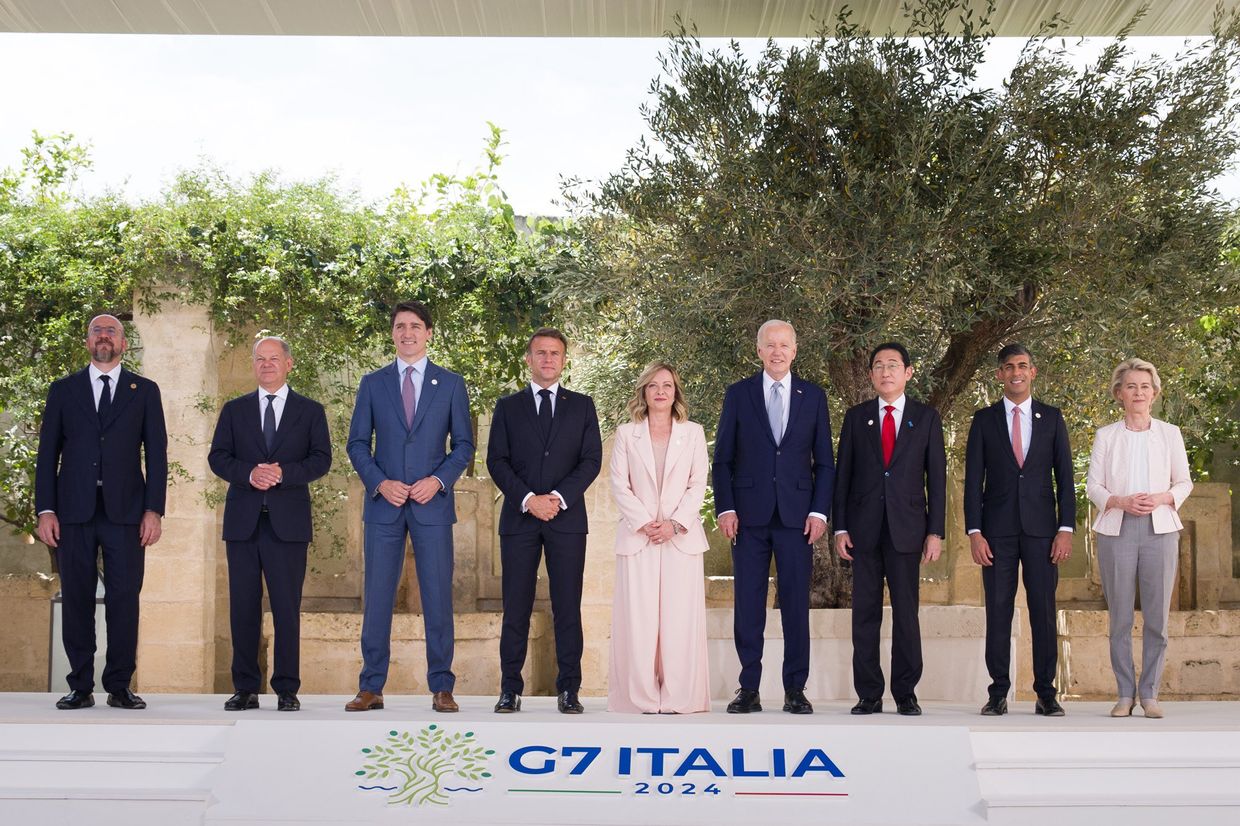Telegraph: NATO in talks to put more nuclear weapons on standby, Stoltenberg says

Editor's note: This article has been updated to include comment from NATO spokesperson Farah Dakhlallah.
NATO countries are in discussions to deploy more nuclear weapons on standby, NATO Secretary General Jens Stoltenberg told the Telegraph on June 16 as Russia continues to threaten the use of nuclear weapons.
Speaking at NATO headquarters in Brussels, Stoltenberg called on NATO countries to demonstrate their nuclear arsenal, adding that consultations among NATO members on taking nuclear weapons out of storage and into standby are in progress.
Russian President Vladimir Putin has repeatedly made nuclear threats against Ukraine and the West since the beginning of the full-scale invasion in February 2022. The threats have failed to materialize, and Russia continues to wage its all-out war without its nuclear arsenal.
Stoltenberg also urged NATO members to demonstrate nuclear transparency as a deterrent for nuclear aggression.
"Transparency helps to communicate the direct message that we, of course, are a nuclear alliance," Stoltenberg told the Telegraph. "NATO's aim is, of course, a world without nuclear weapons, but as long as nuclear weapons exist, we will remain a nuclear alliance, because a world where Russia, China and North Korea have nuclear weapons, and NATO does not, is a more dangerous world.”
Stoltenberg's comments echo ones made last week by Pranay Vaddi, the White House's senior director for arms control, who said that the United States may have to increase its deployment of strategic nuclear weapons amid growing threats from China, Russia, and other adversaries.
"Absent a change in adversary arsenals, we may reach a point in the coming years where an increase from current deployed numbers is required," Vaddi said on June 8. "We need to be fully prepared to execute if the president makes that decision. If that day comes, it will result in a determination that more nuclear weapons are required to deter our adversaries and protect the American people and our allies and partners," Vaddi said.
On June 17, NATO spokesperson Farah Dakhlallah clarified Stoltenberg's comments.
"NATO is committed to ensuring a safe, secure and effective nuclear deterrent," he said in a comment to the Kyiv Independent.
"For that purpose, we have an ongoing modernization programme to replace legacy weapons and aircraft.
"Beyond that, there are no significant changes to our nuclear deterrent."
As Russia's nuclear sabre-rattling continues, Stoltenberg also warned of perceived threat that China poses as it continues to develop its nuclear weapons arsenal.
"Nato may face something that it has never faced before, and that is two nuclear-powered potential adversaries – China and Russia. Of course, this has consequences," Stoltenberg said, referring to estimates citing that China may have as many as 1,000 nuclear warheads by 2030.
Earlier this week, Russia and Belarus began the second stage of their tactical weapons nuclear drills, simulating the use of nuclear weaponry in Ukraine.
According to Russia's Defense Ministry, the drills are in response to "provocative statements and threats of individual Western officials against the Russian Federation" - although the ministry did not specify which Western officials were making threats or provocative statements.
The Group of Seven (G7) warned in a joint statement on June 14 that a situation where Russia would use nuclear weapons in its war against Ukraine would be "inadmissible."
The G7 also highlighted China and other third countries "that materially support Russia's war machine," and said it would continue to sanction entities based in these countries "that facilitate Russia's acquisition of items for its defense industrial base."











